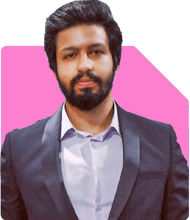Ramalingam Kalirajan |9854 Answers |Ask -Follow
Mutual Funds, Financial Planning Expert - Answered on Jun 27, 2024
He has an MBA in finance from the University of Madras and is a certified financial planner.
He is the director and chief financial planner at Holistic Investment, a Chennai-based firm that offers financial planning and wealth management advice.... more

I am 40 year old. I have a salary of 65000 rs. My wife takes care of the house, my parents and our 1.8 year old daughter. I live in a rented property. I am want to buy a property in gurgaon which is suitable for whole family. I have sold a property I pre-owned in gurgaon in 3300000. But now as property rates are on hike am not able to search for a suitable property. Help me search a property and plan my daughter's future as well.
Understanding Your Current Financial Situation
First, let's look at your current financial status. Your salary is Rs. 65,000 per month, and your wife takes care of the household, your parents, and your young daughter. Living in a rented property in Gurgaon, you aim to buy a home suitable for your entire family.
Funds from Property Sale
You recently sold a property in Gurgaon for Rs. 33,00,000. This amount will significantly contribute to your new property purchase. Given the rising property rates, finding a suitable home within your budget can be challenging but manageable with proper planning.
Property Search in Gurgaon
Set a Budget
Your budget for purchasing a property should include the amount from your property sale and any additional funds you can allocate. Given the sale amount of Rs. 33,00,000, aim to add some savings to this amount if possible.
Determine Your Requirements
Assess your family's needs in terms of space and amenities. Consider the following:
Number of bedrooms
Proximity to schools and hospitals
Access to public transportation
Safety and neighborhood quality
Explore Financing Options
You might need to take a home loan to cover any shortfall. Check your eligibility based on your income and credit score. Banks typically offer home loans up to 80% of the property value. Ensure the EMI is manageable within your monthly budget.
Research Property Options
Look for properties in Gurgaon that fit your budget and requirements. Areas like Sector 56, 57, and Sohna Road offer good residential options. Consider contacting real estate agents or using property search websites to explore listings.
Planning Your Daughter’s Future
Secure Education and Marriage Funds
Your daughter is 1.8 years old, giving you time to plan for her education and marriage. Start by estimating the future costs for both these milestones.
Investment Options for Her Future
Fixed Deposits and Recurring Deposits
FDs and RDs are safe options for securing funds. They offer guaranteed returns and can be a good choice for short-term goals.
Public Provident Fund (PPF)
PPF is a long-term, tax-free investment option. It is excellent for accumulating a substantial amount over time due to its compounding nature.
Mutual Funds
Mutual funds can provide higher returns over the long term. Consider equity mutual funds for higher growth potential, keeping in mind the risk associated.
Building a Comprehensive Financial Plan
Emergency Fund
Maintain an emergency fund covering at least 6 months of expenses. This fund will provide financial security during unexpected situations.
Insurance Coverage
Ensure you have adequate life and health insurance coverage. Life insurance will secure your family’s future, while health insurance will cover medical expenses.
Evaluating Investment Strategies
Active vs. Passive Funds
Active funds are managed by professionals aiming to outperform the market. They can be beneficial due to their potential for higher returns compared to index funds, which merely replicate market indices.
Benefits of Regular Funds
Investing through a Mutual Fund Distributor (MFD) with CFP credentials offers several advantages:
Professional guidance
Personalized advice
Better fund selection based on your risk profile
Disadvantages of Index Funds
While index funds have lower fees, they lack the potential for higher returns that actively managed funds offer. They simply track the market and do not aim to outperform it.
Regular Monitoring and Review
Regular Review of Investments
Periodically review your investment portfolio to ensure it aligns with your goals. Adjust the allocation based on changing market conditions and personal circumstances.
Professional Advice
Consulting with a Certified Financial Planner regularly can help you stay on track with your financial goals. They can provide personalized advice and make necessary adjustments to your plan.
Buying a Property: Key Considerations
Legal Verification
Ensure the property has clear legal titles. Verify documents such as the sale deed, land records, and approvals from local authorities.
Home Loan Process
Compare home loan offers from different banks. Consider factors like interest rates, loan tenure, and processing fees. Ensure the EMI fits comfortably within your budget.
Property Valuation
Get the property valued to ensure you are paying a fair price. This step helps in negotiating the purchase price and securing the right loan amount.
Final Insights
Buying a property in Gurgaon and planning your daughter's future requires meticulous planning and execution. By setting a realistic budget, exploring financing options, and selecting suitable investment avenues, you can achieve your goals. Regularly review your financial plan with the help of a Certified Financial Planner to ensure it remains aligned with your objectives. Remember, the right financial strategy will provide security and growth for your family.
Best Regards,
K. Ramalingam, MBA, CFP,
Chief Financial Planner,
www.holisticinvestment.in
You may like to see similar questions and answers below
Ramalingam Kalirajan |9854 Answers |Ask -Follow
Mutual Funds, Financial Planning Expert - Answered on Apr 12, 2024
Ramalingam Kalirajan |9854 Answers |Ask -Follow
Mutual Funds, Financial Planning Expert - Answered on May 14, 2024
Ramalingam Kalirajan |9854 Answers |Ask -Follow
Mutual Funds, Financial Planning Expert - Answered on May 22, 2024
Ramalingam Kalirajan |9854 Answers |Ask -Follow
Mutual Funds, Financial Planning Expert - Answered on May 22, 2025
Patrick Dsouza |1336 Answers |Ask -Follow
CAT, XAT, CMAT, CET Expert - Answered on Jul 27, 2025
Patrick Dsouza |1336 Answers |Ask -Follow
CAT, XAT, CMAT, CET Expert - Answered on Jul 27, 2025
Nayagam P P |9494 Answers |Ask -Follow
Career Counsellor - Answered on Jul 27, 2025
Nayagam P P |9494 Answers |Ask -Follow
Career Counsellor - Answered on Jul 27, 2025
Nayagam P P |9494 Answers |Ask -Follow
Career Counsellor - Answered on Jul 27, 2025
Nayagam P P |9494 Answers |Ask -Follow
Career Counsellor - Answered on Jul 27, 2025
Nayagam P P |9494 Answers |Ask -Follow
Career Counsellor - Answered on Jul 27, 2025
Nayagam P P |9494 Answers |Ask -Follow
Career Counsellor - Answered on Jul 27, 2025
Nayagam P P |9494 Answers |Ask -Follow
Career Counsellor - Answered on Jul 27, 2025
Mohit Arora |71 Answers |Ask -Follow
Dating Coach - Answered on Jul 27, 2025


















